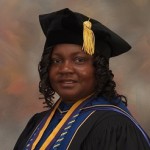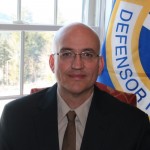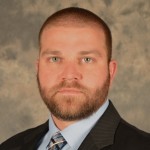By Leischen Stelter, editor of In Public Safety
Changing careers is not an easy process for anyone. However, it’s something that many professionals—especially those in the military and public safety sectors—will go through at some point in their working life.
In the month of September, In Public Safety is dedicated to sharing first-hand accounts from public safety professionals about their experience making major career transitions. These authors have transitioned from careers in the military, law enforcement, corrections, and other public safety fields into careers in the private sector, intelligence community, academia, and more.

Career transitions are rarely easy but, with hard work and an open mind, it is possible to achieve your career goals. Please feel free to comment on these articles or email individual authors with questions or requests for additional advice.
And, if you are an American Military University student or alumnus who is currently looking for new career opportunities, register for AMU’s Public Service Virtual Career Fair on Tuesday, September 22. This career fair will feature employers from public service organizations seeking candidates in criminal justice, security management, emergency and disaster management, and other related fields.

Whether you are retiring from the military, transitioning from the classroom, or simply looking to move into the public service field, identifying and communicating your military service and other skills to potential employers is essential.

AMU criminal justice program director, Dr. Chuck Russo, writes about how in a little over 25 years he went from being a 19-year-old kid driving a patrol car to a 47-year-old Ph.D. running a department for a major university. Learn how keeping your options open and preparing yourself can lead to new and exciting opportunities.

AMU criminal justice professor, Dr. Ron Wallace, shares the different phases of his career and how he went from being a parole/probation officer to finding his next passion, providing technology solutions for correctional facilities. After a downturn in the economy, he went back to school and the rest is history. What lessons can you learn?

AMU intelligence studies professor, Dr. Valerie E. Davis, writes about how aspiring intelligence analysts must develop and perfect four core abilities: research, language skills, diverse knowledge, and teamwork.

AMU criminal justice professor Chris Davis shares how he transitioned from a career in the military to law enforcement and then again to a career as a teacher. While officers have the skills and real-world experience many universities seek, first-hand experience is not enough. Here are the steps you must take to be an effective educator.

AMU Intelligence Studies professor Beth Subero writes about her experience transitioning into academia after a 21-career in the military. If you’re looking to make a similar transition, Professor Subero offers several tips to help you on your journey.

Counseling and Other Sources to Help with Career Transition
If you haven’t been actively planning for your career transition, there are many tools and services available to help. AMU’s Dr. Chuck Russo discusses the steps you can take now to determine what career is a good fit for you and what experience and education you will need to successfully transition to a new career after law enforcement.

AMU professor Michael Beshears writes about the turning point in his military career that prompted him to start thinking about what he wanted to do after his military service. Remember, it’s never too late to earn a college degree.

AMU alumnus, Brian Meek, is a 24-year veteran of law enforcement. Learn what motivated him to start preparing for a second career in intelligence and what advice he has for others.

AMU’s Dr. Allan Conkey went from a career in military policing to civilian policing. Here are seven key factors to consider before you make the leap.

AMU’s Dr. Valerie Davis offers helpful tips to help you find your next career including including examining the job market and looking for areas that are expanding, developing, or changing.

Returning to civilian life after being in the military is not an easy transition. AMU’s Michelle Beshears writes about how her plans for a life of military service was disrupted after an unexpected medical discharged at the age of 29.

Many police officers can retire at a young age, but to be comfortable in retirement, officers must be proactive about planning and managing their money. AMU’s Dr. Chuck Russo provides guidance about what officers can do today to ensure they enjoy a comfortable standard of living into their retirement years.

Before deciding to retire or leave a career in law enforcement, be sure to fully understand your financial needs. AMU professor Matt Loux, offers recommendations about how to evaluate your financial needs and use that information to then begin a career search.

AMU professor Anthony Galante offers lessons he learned throughout his career as evidence that there’s not one clear path in your professional endeavors.
Comments are closed.